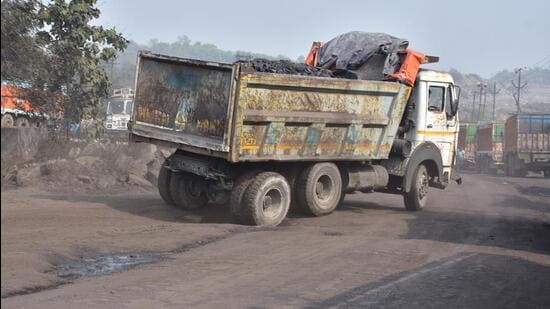Our Terms & Conditions | Our Privacy Policy
Delhi to pilot emission-cutting retrofit devices on heavy vehicles | Latest News Delhi
New Delhi
Heavy vehicles are banned from Delhi in winter, when pollution peaks. (Representative photo)
The Delhi government is evaluating the viability of rolling out a project to test retrofitting devices on heavy commercial vehicles, which may slash harmful emissions by more than 70%, in a first-of-its-kind pilot, environment minister Manjinder Singh Sirsa said on Wednesday.
The Delhi Pollution Control Committee (DPCC) will kick off the pilot by fitting these devices on 30 Bharat Stage-III and Bharat Stage-IV vehicles, predominantly in the government and public sector fleet, the minister said. If found viable, it may be included in long-term plans, Sirsa said.
“Delhi is taking a decisive leap towards tech-driven pollution control. This is not only a first in India, but also a model that can be replicated in other cities and sectors where fossil fuel engines are a major source of pollution. We are exploring permanent, scalable solutions that keep essential transport running while cleaning Delhi’s air,” Sirsa said.
The decision, according to officials, is aimed at replacing blanket bans with targeted, tech-driven solutions to reduce pollution, without crippling livelihoods. Usually in winter, transporters and heavy vehicle owners complain of financial losses due to restrictions on entry into Delhi under the Graded Response Action Plan (Grap). The plan is seen as a possible solution to the Commission for Air Quality Management’s (CAQM) orders.
While the government maintains it will fully comply with the legal mandates, Sirsa said the pilot signals a parallel strategy.
The retrofitting units in form of catalytic converter, installed at the tail-end of the exhaust system, target particulate matter (PM), carbon monoxide (CO), hydrocarbons (HC), and nitrogen oxides (NOx) — four of the most harmful pollutants produced by diesel engines. Field tests across over 9,000 kilometres have shown the devices can cut these emissions by over 70%, while maintaining low back-pressure, high durability and self-regeneration capability, officials said.
The device has been developed by a private agency called Chakra Innovations Pvt. Ltd. They have conducted their internal testing.
Under the plan, the DPCC will act as the nodal agency, coordinating with departments such as the Public Works Department (PWD), Municipal Corporation of Delhi (MCD), Delhi Jal Board (DJB) and the health department to identify BS-IV and older government vehicles for the retrofit.
Technical validation will be done by the Indian Institute of Technology (IIT), Delhi, or the International Centre for Automotive Technology (ICAT). Officials said the devices use catalytic converters tailored for heavy-duty diesel applications, trapping and converting toxic exhaust into less harmful compounds.
“Heavy commercial vehicles, especially older diesel trucks, are one of the biggest contributors to Delhi’s winter smog, releasing a disproportionate share of PM2.5 and NOx emissions. If proven successful, the pilot could lay the groundwork for large-scale deployment across Delhi and potentially other high-pollution hotspots nationwide,” an official with the environment department said.
While court and commission-mandated bans have kept many such vehicles away from the Capital, the city continues to battle pollution spikes during peak season, often worsened by transport activity.
Sirsa said the government has been receiving increasing interest from start-ups and manufacturers offering “science-backed” devices that can be tested in real-world conditions. “It’s encouraging that more innovators are coming to Delhi first. That shows we’re now seen as a leader in implementing environmental technology,” Sirsa said.
Images are for reference only.Images and contents gathered automatic from google or 3rd party sources.All rights on the images and contents are with their legal original owners.



Comments are closed.